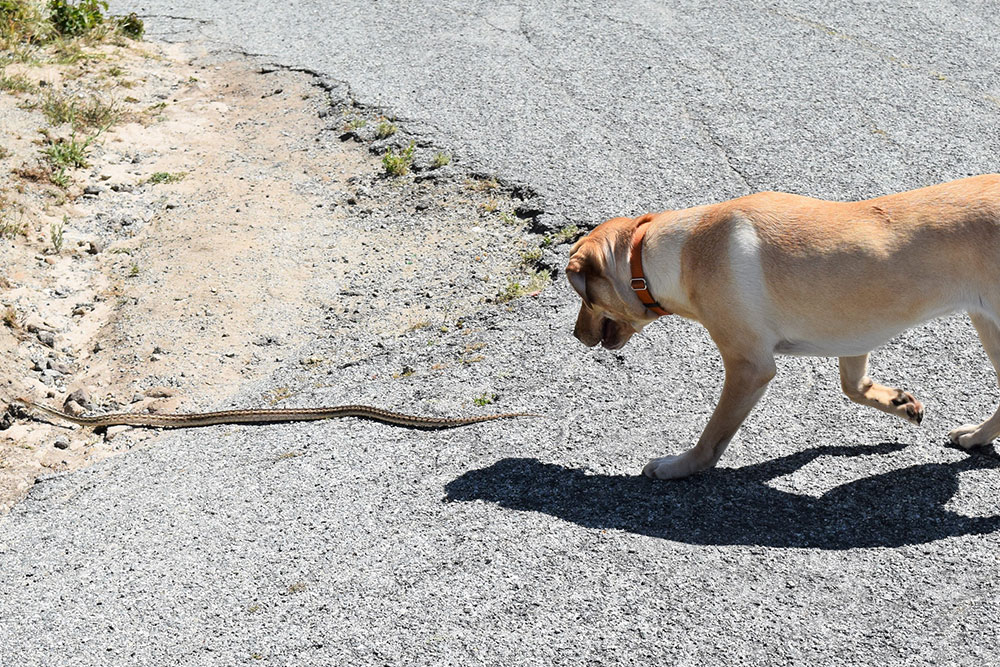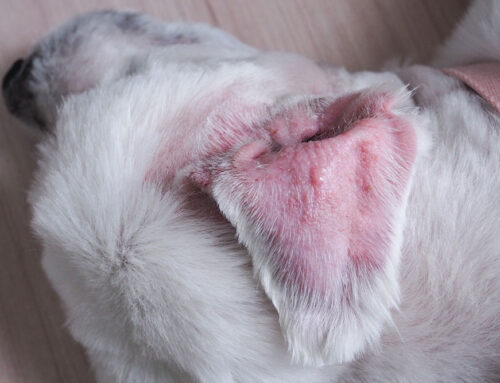Imagine this: you’re enjoying a sunny Valley Center Day when your dog yelps unexpectedly during a walk. You kneel down and spot two small puncture wounds on their paw. Could it be a snake bite?
It’s a terrifying scenario—but one that local pet owners unfortunately face more often than you’d expect. At Valley Center Veterinary Clinic, we want you to feel prepared—not panicked—if this emergency arises. Here’s what you need to know about snake bites, how to act fast, and how to protect your pet moving forward.
Understanding Snake Bites in Pets
What Is a Snake Bite?
A snake bite refers to puncture wounds left by fangs, sometimes with venom injection. While not all bites are venomous, those that are can lead to rapid, severe health consequences. Prompt veterinary care is essential.
Where and Why Bites Happen
Here in Valley Center, snake encounters often happen outdoors—on trails, in brushy areas, or even in your own backyard. Snakes are most active during warm weather, and pets, by nature curious, are vulnerable to surprise interactions.
Recognizing Snake Bites: Signs to Watch For
Immediate Signs
If your pet was bitten, you may notice:
- Puncture wounds (sometimes bleeding)
- Sudden pain: yelping, limping, or favoring a limb
- Rapid swelling at the bite site
- Restlessness or anxiety
Systemic Symptoms
Envenomation can cause more serious reactions, such as:
- Lethargy or collapse
- Muscle tremors or weakness
- Labored breathing
- Drooling or vomiting
- Irregular heartbeat
If untreated, symptoms may worsen over hours or days and lead to critical complications.
What If You Don’t Seek Immediate Care?
Delaying treatment for a venomous snake bite puts your pet at serious risk. Without veterinary intervention:
- Tissue damage can worsen, sometimes leading to necrosis or permanent limb injury.
- Venom can affect vital organs, resulting in kidney or liver damage.
- Secondary infections are more likely.
- Death is possible if envenomation causes shock or respiratory failure.
Even bites that seem minor can become life-threatening. If you suspect a bite, don’t wait—seek care immediately.
Responding to a Snake Bite: What to Do
Stay Calm and Take Action
- Don’t try to catch or kill the snake. If you can identify it safely from a distance, that information can help—but don’t put yourself at risk.
- Keep your pet as still as possible. Movement can spread venom faster.
- Gently clean the wound with water—no alcohol, hydrogen peroxide, or ointments.
- Avoid tourniquets or suction devices. These can cause more harm than good.
- Call us right away or head to the nearest emergency vet. If possible, call ahead to prepare the care team.
Veterinary Care: What to Expect
Initial Assessment
Our team will:
- Perform a full exam
- Monitor vital signs
- Start supportive care (IV fluids, oxygen, pain relief)
Diagnostics
We may run:
- Blood tests to assess clotting and organ function
- Urinalysis to monitor muscle breakdown
- Venom ID testing, if applicable and available
Treatment
- Antivenom if the bite is venomous and qualifies
- Pain management and anti-inflammatories
- Fluids and antibiotics to prevent complications
- Ongoing monitoring for 24–72 hours or more depending on severity
Learn more about our diagnostics here.
Prevention: How to Minimize Risk
- Keep yards clear of tall grass, wood piles, or debris that may attract snakes.
- Leash your pet on trails and avoid letting them roam into brush and rock piles.
- Snake avoidance training may be a good fit for dogs with outdoor access.
- Consider the rattlesnake vaccine, especially for active outdoor dogs.
FAQs: Quick Answers to Common Concerns
How do I know if the bite was venomous?
Unless you see the snake and can safely identify it, assume all bites are venomous and seek care immediately.
Should I use a tourniquet or try to suck out venom?
No. These methods are outdated and potentially harmful.
Can snake bites be fatal?
Yes—especially without treatment. Prompt care significantly improves outcomes.
Can bites happen in my backyard?
Absolutely. Even well-maintained yards in Valley Center can attract snakes..
We’re Here to Help
At Valley Center Veterinary Clinic, we understand the fear and urgency that comes with a snake bite. Our team is trained to act quickly and treat these emergencies with expert care and empathy. If you have questions about prevention, training, or emergency preparedness, don’t hesitate to contact us,
We’re proud to serve the Valley Center community—and help your pets explore it safely.








Leave A Comment